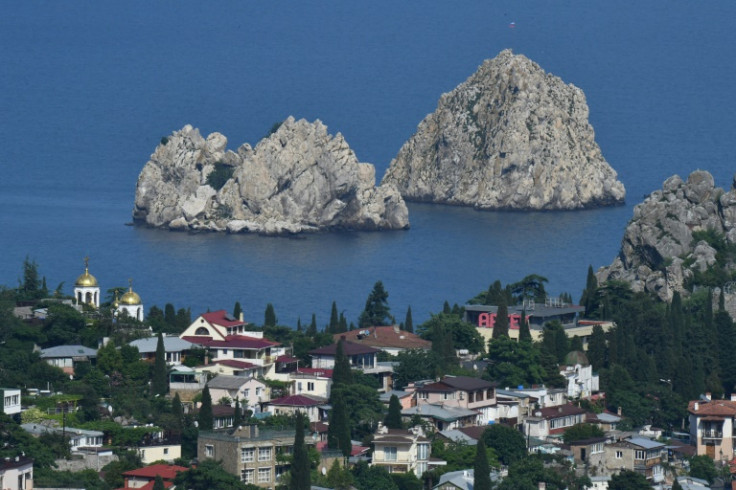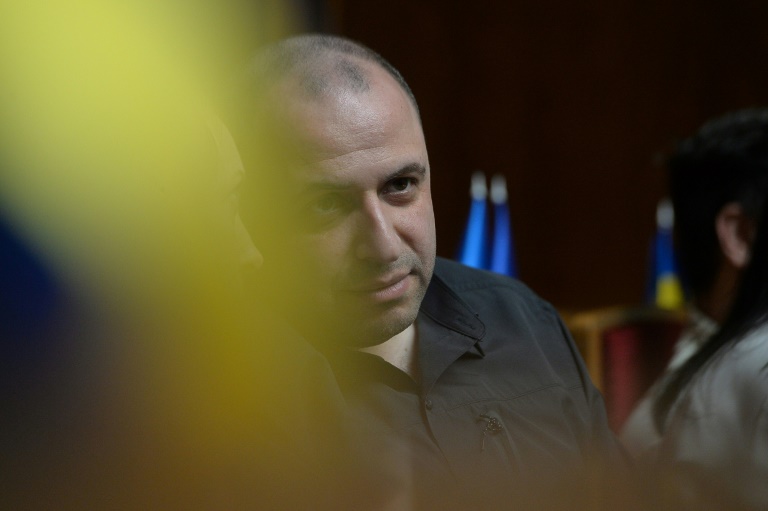Rustem Umerov, confirmed by parliament as Ukraine’s new defence minister Wednesday, is known as a skilful and pragmatic negotiator with excellent connections in the Muslim world.
The 41-year-old former businessman has already spearheaded some of Ukraine’s most sensitive missions, such as prisoner exchanges and negotiating with Russia shortly after the invasion.
“My role is in informal and discreet communication channels,” he told Ukrainian media last October.
“It’s impossible to put pressure on me,” he said, adding that any talks with Ukraine would be held “either equal-to-equal on no talks at all”.
Umerov is a prominent member of the Tatar Muslim community from Crimea, the Black Sea peninsula annexed by Russia in 2014 that Ukrainian President Volodymyr Zelensky has vowed to re-capture.
“This is the highest office ever occupied by a Crimean Tatar,” Sergiy Leshchenko, an adviser to the head of the presidential administration, told AFP.
“His nomination as defence minister is a beautiful political gesture. It means Russia cannot be forgiven for anything and there will be no compromise on Crimea.”
Since the start of Russia’s invasion in 2022, Ukraine has rejected proposals by some in the West that the country should find a “compromise” with Russia by accepting Crimea’s capture.
Umerov was born in 1982 in then Soviet Uzbekistan where his family had been deported under Joseph Stalin.
He was a child when the Tatars — who now make up 12-15 percent of Crimea’s population — were allowed to return. Some 30,000 Tatars have since left after Russia’s takeover.
Umerov speaks fluent English, Turkish, some Arabic as well as Ukrainian and Russian.
In the weeks following the invasion, he was part of a Ukrainian delegation that negotiated directly with Moscow.
He then took part in several rounds of talks to set up the Black Sea grain corridor that allowed Ukrainian maritime exports, an accord brokered with Moscow by Turkey and the United Nations.
He also played a key role last year in negotiating a high-profile prisoner exchange in which Russia released several top commanders who defended the besieged port city of Mariupol to Turkey and some foreign fighters to Saudi Arabia.
It was Umerov who greeted the 10 foreign volunteers, including some US citizens, when they landed in Riyadh.
“He negotiated the Saudi intervention. It was his contacts and his stratagem,” a senior parliamentary source close to the presidency told AFP.
“He is a pragmatist and has the mentality of a businessman,” the source said.
Leshchenko described Umerov as “charismatic” and “a good communicator” who is “quickly liked” by people around him.
“He knows how to get results with few resources, thanks to his personal contacts.”
Yevgeniya Kravchuk, the deputy head of Zelensky’s parliamentary group, said Umerov is “very calm in a good way and super resilient under stress”.
She also said he had a “direct contact” with Turkish President Recep Tayyip Erdogan’s administration.
Some observers, however, say his room for manoeuvre may be limited because he is too close to the influential head of the presidential administration, Andriy Yermak.
The parliamentary source said only that the two “have a good understanding”.
While his predecessor Oleksiy Reznikov left his post under a cloud following accusations of corruption in army contracts, Umerov’s candidacy has been welcomed by anti-corruption activists.
Daria Kaleniuk, executive director of the Centre for Anti-Corruption Action, a non-governmental organisation, praised his efforts to eradicate corruption as head of the State Property Fund — a post to which he was appointed last year.
She also said he had conducted “behind the scenes lobbying” to secure Western arms supplies.
In his student days, Umerov took part in a one-year US exchange programme before graduating in economy and finance in Ukraine.
He started out in business in 2004 working for Lifecell, a mobile phone operator owned by Turkey’s Turkcell, and then set up an investment company in 2013.
In 2019, he was elected to parliament as a member of the pro-European Golos party.
For many years, he has been an adviser to the historic leader of the Tatar community, Mustafa Dzhemilev, who has now been banned from travelling to Crimea by Russia.
As an MP, Umerov also worked for the Mejlis, the traditional Tatar assembly banned by Moscow and he helped out Tatars affected by Russia’s crackdown.
A former parliamentary colleague told AFP: “He is a man who knows how to get things done”.
AFP

AFP







